Refine search
Actions for selected content:
23990 results in Ancient history
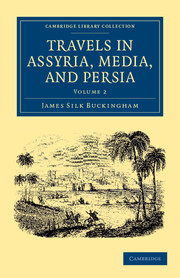
Travels in Assyria, Media, and Persia
-
- Published online:
- 05 February 2013
- Print publication:
- 08 March 2012
- First published in:
- 1830
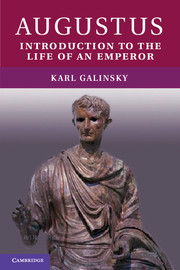
Augustus
- Introduction to the Life of an Emperor
-
- Published online:
- 05 February 2013
- Print publication:
- 16 July 2012
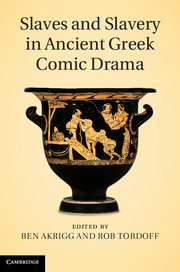
Slaves and Slavery in Ancient Greek Comic Drama
-
- Published online:
- 05 February 2013
- Print publication:
- 31 January 2013
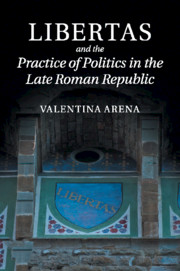
Libertas and the Practice of Politics in the Late Roman Republic
-
- Published online:
- 05 February 2013
- Print publication:
- 03 January 2013
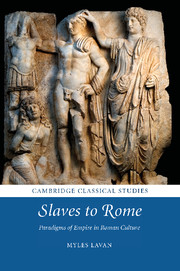
Slaves to Rome
- Paradigms of Empire in Roman Culture
-
- Published online:
- 05 February 2013
- Print publication:
- 14 February 2013
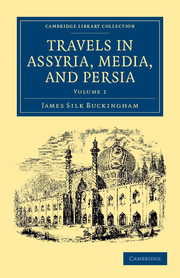
Travels in Assyria, Media, and Persia
-
- Published online:
- 05 February 2013
- Print publication:
- 08 March 2012
- First published in:
- 1830

Slave Revolts in Antiquity
-
- Published by:
- Acumen Publishing
- Published online:
- 05 February 2013
- Print publication:
- 31 March 2008
-
- Book
- Export citation
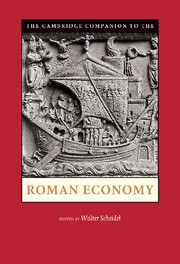
The Cambridge Companion to the Roman Economy
-
- Published online:
- 05 February 2013
- Print publication:
- 08 November 2012
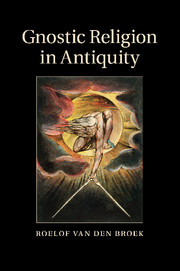
Gnostic Religion in Antiquity
-
- Published online:
- 05 February 2013
- Print publication:
- 24 January 2013
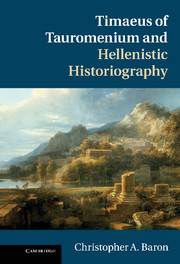
Timaeus of Tauromenium and Hellenistic Historiography
-
- Published online:
- 05 February 2013
- Print publication:
- 13 December 2012
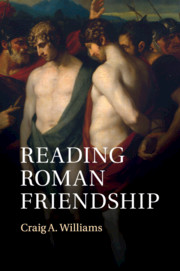
Reading Roman Friendship
-
- Published online:
- 05 February 2013
- Print publication:
- 18 October 2012
Contents
-
- Book:
- Slaves and Slavery in Ancient Greek Comic Drama
- Published online:
- 05 February 2013
- Print publication:
- 31 January 2013, pp vii-viii
-
- Chapter
- Export citation
Chapter 2 - Slaves and politics in early Aristophanic comedy
-
-
- Book:
- Slaves and Slavery in Ancient Greek Comic Drama
- Published online:
- 05 February 2013
- Print publication:
- 31 January 2013, pp 63-75
-
- Chapter
- Export citation
Notes on contributors
-
-
- Book:
- Slaves and Slavery in Ancient Greek Comic Drama
- Published online:
- 05 February 2013
- Print publication:
- 31 January 2013, pp x-xii
-
- Chapter
- Export citation
Chapter 1 - Introduction: slaves and slavery in ancient Greek comedy
-
-
- Book:
- Slaves and Slavery in Ancient Greek Comic Drama
- Published online:
- 05 February 2013
- Print publication:
- 31 January 2013, pp 1-62
-
- Chapter
- Export citation
Chapter 6 - A comedy of errors: the comic slave in Greek art
-
-
- Book:
- Slaves and Slavery in Ancient Greek Comic Drama
- Published online:
- 05 February 2013
- Print publication:
- 31 January 2013, pp 124-143
-
- Chapter
- Export citation
Index locorum
-
- Book:
- Slaves and Slavery in Ancient Greek Comic Drama
- Published online:
- 05 February 2013
- Print publication:
- 31 January 2013, pp 248-261
-
- Chapter
- Export citation
Abbreviations
-
- Book:
- Slaves and Slavery in Ancient Greek Comic Drama
- Published online:
- 05 February 2013
- Print publication:
- 31 January 2013, pp xv-xvi
-
- Chapter
- Export citation
Copyright page
-
- Book:
- Slaves and Slavery in Ancient Greek Comic Drama
- Published online:
- 05 February 2013
- Print publication:
- 31 January 2013, pp iv-iv
-
- Chapter
- Export citation
Chapter 3 - Slavery, drama and the alchemy of identity in Aristophanes
-
-
- Book:
- Slaves and Slavery in Ancient Greek Comic Drama
- Published online:
- 05 February 2013
- Print publication:
- 31 January 2013, pp 76-90
-
- Chapter
- Export citation
